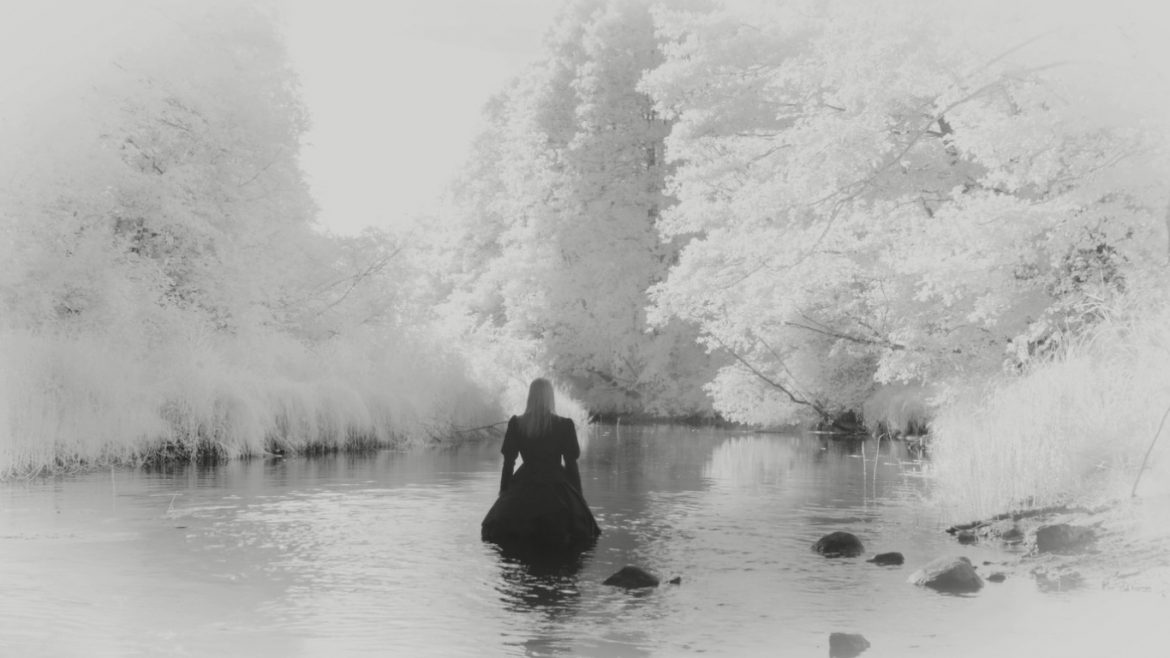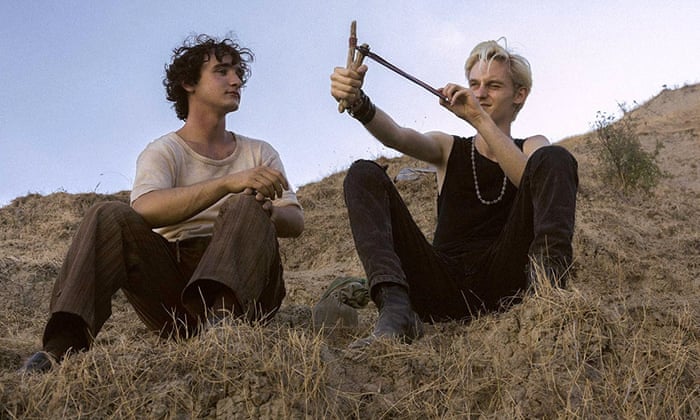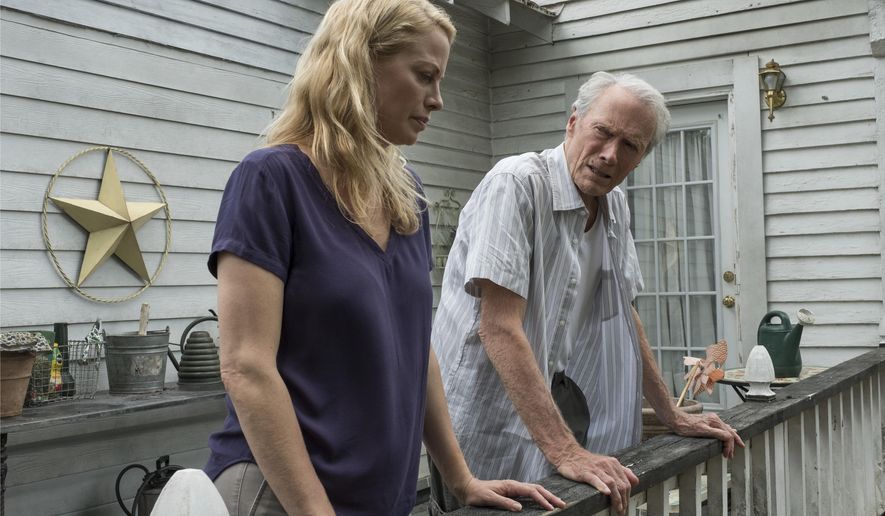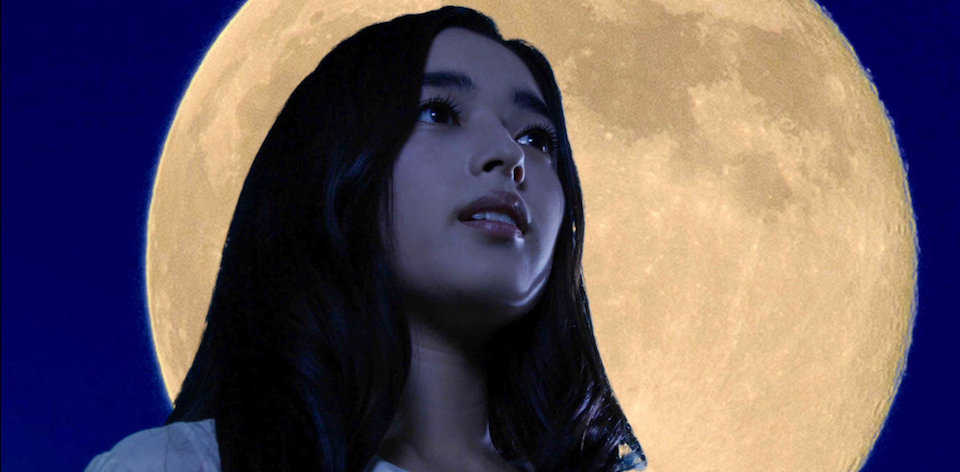A link to Part 1 here.
A link to Part 2 here.
A link to Part 3 here.
A link to Part 4 here.
And with this, we conclude with
the following...
Bonus Entry: Sarazanmai (2019) [Global Streaming Premiere]
First of all though, I would kick
myself not to mention the following, which has to have this special entry for
the simple fact this is an eleven episode animated show, one whose co-director/creator
Kunihiko Ikuhara is a true auteur,
but is as a series an odd one out here just because (annoyingly) TV series get
discounted off certain film listing sites.
Sarazanmai marks a great end to the 2010s for Ikuhara, whose after an absence in the 2000s, came back to
directing anime in the 2010s with three truly unique television anime - Mawaru Penguindrum (2011), a complex
and sprawling piece of surrealism explicitly dealing with the 1995 sarin gas
attacks on the Tokyo subway; Yurikuma
Arashi (2015), explicitly about the persecution of gay women by way of a
tale of a forbidden love between girl and girl-bear; and Saranzanmai, which is the first work of his which is entirely about
a male cast, a magical realistic musical drama comedy in which three teenage
boys are transformed into kappa, sent off to deal with ghosts who are manifestations
of desires left to turn toxic.
The show, as with everything from
Ikuhara, is significantly more
complicated than this as beneath his pop surrealism, the auteur deals with very
dark or/and adult material throughout his work, this one dealing with
everything from anti-capitalist ideas, mocking Amazon with all the delivery box motifs, to a gay male character with
a conflict in his love for another character, or two villains whose sympathies
we gain when the pair, two male lovers, are in their own tragedy. Probably the
one detriment to Sarazanmai is how
brisk this show is at just eleven episodes, but it doesn't deny that it's an
impressive return from the director I was grateful to see.
It's also utterly unique on a
visual standpoint, constantly weird and hilarious, has musical numbers and
manages, due to real life kappa mythology, have a plot point entirely about
having to suck people's souls out of their anuses, which is even more hilarious
as it was revealed Ikuhara didn't
even let the producers know he was including that detail until the production
started.
10. 24 Frames (2017) [UK Blu-Ray Premiere]
This top ten proper is going to
run with two reoccurring themes, one of veterans in their older years making
some of their best work, reflecting back on life, and the number of these
inexplicably not readily available or shown in theatrical screenings. Thankfully,
24 Frames was released by Criterion in the USA and UK, so it's
able to be seen.
The film also marks the fact that
its creator, legendary Iranian director Abbas
Kiarostami, wasn't even able to fully complete the production as he died of
cancer in 2016. The 2010s felt as if it was the legendary auteur going around
the world - Certified Copy (2010) a
puzzle set in Italy, Like Someone in
Love (2012) in Japan - but it is sad that this never came to be.
He nonetheless left on a work as
idiosyncratic as everything else, a man who gladly straddled naturalism and
overt experimentalism, ending his filmography with what are living photographs,
heavily reliant on computer effects but with a visible sense of the
unnaturalness adding to the beauty of the material. It's not hard for me to
create a parallel with the film that has the number one spot, which we will get
to, in a number of reasons, but 24
Frames was a beautiful echo to a man with a great career in itself.
9. Let the Corpses Tan (2017) [Streaming Premiere in UK]
From the beauty to irritance, as
probably one of the least explainable things is how the latest film from Hélène Cattet and Bruno Forzani, who have been served well in the UK and got a US
theatrical release for this production, had this unique film just dumped on Amazon Prime without even a barebones
DVD release. This is the kind of thing that makes me leery eyed about the
streaming boom, in the sense that we are going to be unfocused on actually
making films readily available to the public in favour of just promoting your
wares.
A shame as, starting off with
reinterpreting the giallo genre in avant-garde form, Cattet and Forzani have
managed to avaid becoming one trick ponies by switching to the poliziotteschi (Italian
crime) genre and western motifs, interpreted through their delirium and
experimental style following a film length shoot out between thieves and cops
in the middle of nowhere. Brimming in surreal and sexy imagery, Cattet and Forzani haven't missed a beat, for me as a duo among the most consistent
working filmmakers. It's just a shame about the poor treatment of this film in
terms of distribution, especially as there are scenes here, golden shower and
all, that would look sumptuous on the biggest theatrical (or home theatre)
screen at hand.
8. The Wandering Soap Opera (2017) [MUBI Streaming Premiere]
And for another film that will be
difficult to see, The Wandering Soap
Opera offers the feat that whilst Raul
Ruiz passed in 2010, he is still making films years later with one planned
to be released in the 2020s. All entirely based on unfinished or unreleased
projects, but Ruiz is like a
character from a Jorge Luis Borges story in that, with all the tangents and
labyrinths in just how his films were made let alone what was inside them, Ruiz
was the perfect man perfect man to defy mortality and still direct, his widow
(and filmmaker) Valeria Sarmiento
committing to an accomplishment anyone can admire by making films like this
available.
The Wandering Soap Opera offers a great example of a) how much Ruiz filmed to be able to accomplish
this, and b) how he was the most extreme form of working director who gladly
took projects, as this originates from a student workshop, one of many he
helped work with over his life. It is also felt with greater significance as
this was the first time the expat, who fled his homeland of Chile in 1973 due
to the military coup d'état led by future dictator Augusto Pinochet, sat back forth on his home soil. This is found in
this series of vignettes of their mix of dark humour and surrealism, even this
little project having so much that stands out as inspired and lasting in
memory, even a man offering a woman to see his muscles and dropping two pieces
of raw meat in her hands. Especially seen in a restored version as intended,
rather than a VHS rip as is usually the case in watching a Raul Ruiz film, it offers how much of an accomplished director he
is. Bold colours, striking images from the unconscious and a lot of weirdness I
had to appreciate.
7. Mektoub, My Love [Canto Uno] (2017) [UK Theatrical Premiere]
Out of this top ten, Abdellatif Kechiche's film is going to
be the one that I will have to defend as its one many will probably have a
negative reaction to. Immediately off the bat, the bigger concern for myself is
the fiasco that surrounded the sequel of this apparent trilogy, Intermezzo (2019), that if the scandal
is entirely truth means Kechiche crossed
a line that I cannot find acceptable. If the accusation is true, that he coerced
his main actress Ophélie Bau with a
male actor into an explicit (possibly real) sex scene with alcohol, that it's
disgusting and a black mark to a director whose work I have seen is
exceptional. Even if this horrible aspect wasn't there, the film had such a
negative reaction that its disappeared since its 2019 Cannes Film Festival
premiere, with suggestions that Kechiche wants
to cut out all of Bau's scenes in it,
which is absurd knowing how much she is integral to the first film's many
virtues.
Sticking to what is called "Canto Uno", barring one very
explicit sex scene in the first few minutes, and certain camera shots, the
dirty coat brigade would be disappointed as this is a three hour plus film
which is an example of slow cinema, with lots of dialogue, and whose biggest
scene is the real life birthing of farm animals. As for the issues of the male
gaze, the film yet (co-written with the Ghalia
Lacroix) puts all the power in the female cast whilst the male characters
aren't likable in the slightest. The women, especially the older ones including
Kechiche regular Hafsia Herzi, are opinionated and completely sympathetic, with all
the issues surrounding Ophélie Bau even
more tragic as she's a huge virtue of this first film, a character full of life
whose home life, working on a farm, is devoted to with utter sympathy. In
contrast, the men visibly come off as problematic, like the kind old uncle who
is unfortunately too comfortable with young women to the older womens' horror,
or the boyfriend of one character is an arsehole. Even our protagonist is
luckless, a man who cannot even get a nude photography session in the end, let
alone anything else, as his trip through the film is an endless cycle barring
those two animals.
To think Kechiche squandered this project, which plays to the extremity of slow
cinema immersion with its constant scenes in night clubs, to the point it lulls
you into a trance, in a terrible creative decision, tragic more for the people
who worked on this film than him, more for his films as this means a film as
great as Couscous (2007) is now
marked with this if confirmed. The irony is that the first Mektoub, My Love would've worked by itself as a single film, even
if a piece of a source novel, as it fittingly ends where it should've always
been for the protagonist, getting nowhere but humbled.
6. November (2017) [UK Blu-Ray/DVD Premiere]
And here is a case of a film that
should've had a theatrical release too, and it's a tragedy it didn't, only the
fact Eureka released the film as part
of their Montage releases series a consolation.
And this is an example where this
smarts, as this is a new and exciting voice whose style is visually gorgeous in
its monochrome and not like anything you've witnessed before. Inherently this
taps into my favourites for one reason - any film that depicts the real life
mythologies and folklore of its home land is always worth seeing, even a micro
budget Nigerian Nollywood film, as it stands out with something to say about
that culture. From Estonia, this film has made good in drawing eyes to this Eastern
European country's cinema whilst the source, a novel by Andrus Kivirähk, taps into material from their folklore that is
truly unique. This is immediately informed to you the viewer with the first
shot introducing a kratt, a mechanical creation that can be brought to life if
you are willing to trade Satan your soul by way of three drops of blood,
servants of farmers unless they have no work and thus either kill them or, in
this case, get bored and becoming a proto-helicopter, trying to air lift a poor
cow before that concept would properly exist in the 20th century.
November keeps in this direction throughout, between the dead
returning back as giant chickens or ways to trick Satan in terms of that soul,
whilst also eventually becoming a bittersweet romantic tragedy and a scathing
view of ideals, in which baring the sincere love of a young farm girl everyone
else is usually superstitious, greedy, jealous and even stealing objects from
the church. The result is something truly unique, hence that initial lament
that this never got a proper cinema release, with only hope director Rainer Sarnet makes more from the back
of this.
5. Pain and Glory (2019) [UK Theatrical Premiere]
For Pedro Almodóvar, I'd qualify this as a "small" film in
his career, a film which is not about grand gestures like his "large"
film, The Skin I Live In (2011) an
example starting the 2010s for him, but one of small scale scenarios and
emotions. This is not a detriment as these "small" films in an
auteur-director's career are as important as the grander scaled ones, and Pain and Glory slowly crept up the list
to this spot with very good reason. Like many of the films here from older
veterans, Pain and Glory is self
reflective, Antonio Banderas' aging
and ill director frankly a blatant stand-in for Almodóvar himself, once a transgressive and hot new talent in the
1980s like the main character, now a revered master in his older age.
Pretty much anything else I could
say is frankly trifling when the wiser thing would be to just recommend you the
reader to go track the film down, whether you have seen many of Pedro Almodóvar's films or even none at all. It'll do you good.
4. In Fabric (2018) [UK Theatrical Premiere]
In vast contrast, a younger
auteur gets presents us the bizarre tale of an evil dress, which gets
significantly weirder and complicated than that premise sounds. Peter Strickland has spent a career
through the 2010s of making truly idiosyncratic films, with In Fabric really impossible to define,
both in that it is actually a film of multiple plots and that, whilst meant to
be a horror film, also gets into strange comedy when Julian Barratt and Steve Oram
as senior bank managers encourage their staff to role play their stress by
putting on one of the many period costumes inexplicably in their shared office.
A lot can be gained from the
film, be it the scathing view of modern society being oppressive and bland, to
the aesthetic, even down to using old archival imagery to stick this film in a
phantom zone between 1970s and modern Britain. When it's freakish, it's also
strangely sensual, and when it's humorous, it's also surprisingly emotional.
There is a glee in knowing a film
this openly odd was possible to be made, a sense of Peter Strickland already developing a fascinating auteur status of
high art genre filmmaking, but that which surprises. I mean, this film manages
to get away, in a film suitable for fifteen year olds, a lot of transgressive
material that I don't you could in an earlier decade, even in one scene
masturbation and menstruating mannequins, which has to be one of the strangest
sequences of this entire list I've witnessed all year.
3. Happy as Lazzaro (2018) [UK Theatrical Release]
If Alice Rohrwacher's film had stayed in its original form in the
first half, a naturalistic film about a community in a form of manipualition,
as they are within a peasant position in an unknown modern time, I might've
found Happy as Lazzaro disappointing
and sluggish. Then a major shift takes place - [SPOILER] a bit of Rip Van Winkle inspiration in the plotting [SPOILER] - and Rohrwacher's film became excellent. Like the film coming up on in
this top ten, her story is about human decency, as its startling jump into
magical realism nonetheless is a pretext to a humanity in which our titular
figure, a true innocent named Lazzaro who brings around him the best in people
regardless of their position. A scene in this film is entirely about finding
weeds and naturally growing vegetables people ignore growing on backstreets,
and it's compelling alongside the more dramatic scenes, a warm and heartfelt
tale about anyone.
There's still a political side
though, which is made more striking due to this. A sense of rage being held
back in a world which crushes on the poor, coming together in an ending
sequence at a bank that has lingered with me. This was my first Alice Rohrwacher film, and as someone
who has started in the early 2010s, the Italian director has immediately caught
my attention as a potential new great auteur if she is consistent, my hope
being that her other work from before will come together as a strong and unique
voice too.
2. The Mule (2018) [UK Theatrical Premiere]
Speaking of human decency, it's
amazing to think Alice Rohrwacher,
with clear Left leaning sympathies, and Clint
Eastwood, a right leaning libertarian known for films like Dirty Harry (1971), can share similar
views but Eastwood as a director also
made Unforgiven (1994), always
reflecting on the human condition in the few films I have seen with a greater
wisdom as he has aged. Even a film I have found troubling, the Chris Kyle biopic American Sniper (2014), is complicated by scenes that question him
and deal with post traumatic stress syndrome. Eastwood is a director I am growing in admiration of, someone regardless
of politics who takes his work with a greater sense of perspective than most.
The Mule is such a film, and with the film at number one a MUBI
streaming exclusive, The Mule itself
is the best film seen at a cinema for me this year, in which Eastwood manages in deal with a real
life tale of an elderly man who transported drugs around State lines through an
incredible amount of weight, growing it into such thoughtful and intelligent
ways. The morality is never to question as it is about a man showing decency,
stuck in this scenario due to fate, and learning more, both reconnecting to his
family and just learning still in his old age. A scene does far more better in
dealing with a man overcoming politically incorrect ideas, when he accidentally
uses a now unacceptable term whilst helping an African American family with a
broken down car, and learning from them just in how it presents how he with
grow within the moment we never see
when it cuts to the next scene. The film is funny, odes to the simplest things
in life like a pulled pork sandwich, and also deliberately neutering action
tropes with the most relaxed highway pursuit you could have onscreen. He even
manages to get away with his own character having a threesome with two younger women
without it becoming scuzzy, instead sweat and likely to delight men and women
who are older in the audience with the knowledge that aging doesn't mean you
lose out on the fun in life.
Again, on the surface the man who
interviewed a chair wondering where Baraka
Obama is, doesn't fall into any cringe worthy attitudes and instead suggests
this profound sense of humanity. Clint
Eastwood as a result is a smarter director than most who, on the right or
left, just tub-thump and embarrass themselves. He's still making films, with Richard Jewell (2019) in British
cinemas in January 2020, and now I am becoming more interesting in him, there's
a huge filmography as an auteur let alone onscreen to entice me.
1. Hanagatami (2017) [MUBI Streaming Premiere]
The only reason Clint Eastwood didn't get the top spot
is that a Nobuhiko Ōbayashi film that
I may sadly never see again in a long time was streamed on MUBI and was incredible. In spite of the fact House (1977) is rightly become a cult classic, none of Ōbayashi's work beyond it has been
released in the West.
This, reflecting on Abbas Kiarostami's final film, was
supposed to be Ōbayashi's last too,
diagnosed with cancer and with the fear he could die before even filming Hanagatami. He didn't in a miraculous
turn of fate, going on to make Labyrinth
of Cinema (2019), but the ending of this anti-war period film, following
young adults in the shadow of the Pacific War on the side of the Japanese and
the spectre of their country's defeat, clearly was meant to be a goodbye, the
director himself onscreen as part of a hair raising lament for humanity as a
man born during the spectre of the militarisation of Japan and the lasting
effect of its end.
Hanagatami can connect to many films on this top ten. An older
veteran director in his most reflective. A deliberate artificiality in his
juxtaposition of enhanced colours and images for a delirious effect. An ode to
humanity and human decency, undercut by the darkness of what is expected; found
in startling moments like a classmate in the film hanging a pet cat, trying to
force another person's eyes open, or a character whose succumbing to a terminal
disease in her youth. The result is one that, tragically, is going to be a
series of vague recollections in my memories because, again, Ōbayashi hasn't had any of his films
made available in the West barring House. At least MUBI had the decency to show
this at least once, this near three hour gem having such a lasting impact that
it deserved to be in the number one slot.











No comments:
Post a Comment